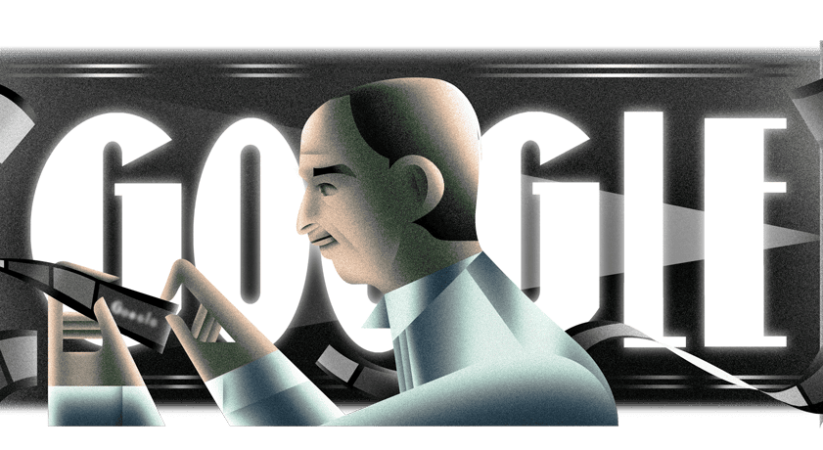In celebration of Hispanic Heritage Month, this doodle honors Cuban-American silent film actor and activist Emerson Romero, whose inspiring actions on and off the screen. He is credited with inventing some of the first technologies to make movies accessible to the hearing impaired. Today’s doodle was painted by Cuban-American guest artist Derek Abela and depicts Romero working on subtitling for a film.
Emerson Romero was born on August 19, 1900 in Havana, Cuba. At the age of six, he was diagnosed with whooping cough and lost his hearing. A year later, his parents enrolled him at the Wright School of Oral Medicine in New York City. After further training in the United States, he was employed by the Federal Reserve Bank of New York.
In 1924, Romero’s brother founded a film company in Cuba and invited Romero to join. He initially worked backstage as a stagehand, but his brother inspired him to try acting. Romero’s athletic ability allowed him to perform his own stunts, and he found himself starring in A Yankee in Havana. Romero’s acting caught the attention of Hollywood movie executives, and he soon moved to California for more opportunities on the big screen.
Over the next few years, Romero appeared in over 20 short films, including such hits as Great Guns, Sappy Days, and The Cat’s Meow. In 1927, talkies, also known as “talkies,” became all the rage. Studios stopped hiring deaf actors and did away with title cards. Subtitles were also removed from finished films, preventing the hearing impaired from enjoying the movies.
Romero returned to his previous job at banking and became an important force in the deaf community. He and his friends founded the Deaf Theatre Guild in New York City. The troupe performed plays in which Romero often starred or directed. He also became editor of Digest of the Deaf magazine and wrote a weekly gossip column for the Farmingdale Post.
He advocated for subtitling films and continued his outreach to the deaf community. In 1947, Romero developed the first subtitles for sound films by cutting film strips and inserting subtitled images between the frames. This innovative technique inspired others to develop more advanced subtitling methods later.
Romero left an incredible legacy by starring in films, directing plays and working to make movies more accessible. As we mark Hispanic Heritage Month, we pay tribute to Romero’s many contributions.
- March Madness 2025: Printable Bracket, Game Schedule & How to Watch - March 13, 2025
- March Madness Miracles: Worst Records to Get an NCAA Tournament Bid - March 13, 2025
- NCAA DI Wrestling Championships 2025: How to Watch, Brackets & Selection Info - March 13, 2025





